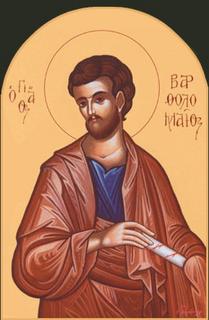This is a continuation of the 73 Steps to Communion with God by Michael Dubruiel. The previous steps appear throughout the Archives, available to the left. This is the 57th step:
(57) To apply one's self often to prayer.
The word that is translated "to apply" can also mean to fall down in adoration (prostration). It is worth mentioning because if anything has been lost in modern Christianity it is the sense of adoration that preceded or indeed was a part of prayer in previous ages. One can still see the ancient method most noticeably in the prayer or Moslems who fall down bowing their heads to the ground whenever they pray.
This reflects the way Christians would have prayed during the time of Mohammed. It has been noted in several biographies of Pope John Paul II that when no one is around that he also prays using this posture. Yet most Catholics have been taught that "standing" is the ancient method of prayer (which quite frankly is nothing short of a lie).
Anyway, "applying" oneself in this manner involves the body in a way that forces one to "pay attention" to what you are doing (also causes the blood to flow to your head). The early Church Fathers recommended this posture whenever anyone was having trouble praying and later St. Ignatius of Loyola instructed pray-ers to find some way to acknowledge that they were in God's presence at the beginning of every prayer period.
To pray continually was an injunction of St. Paul to the Thessalonians, "pray constantly," (1 Thess. 5:17) and if we understand that prayer is communicating with God, we can see that there is nothing more important if we are to be in communion with God.
Every moment of our day is an opportunity for prayer. There is nothing that we do in life that can not be brought to God. But it is important also to set aside time where we are not active and God is the focus of our undivided attention. Ideally this will happen as least seven times a day. Traditionally this would be when we arise in the morning, in the mid-morning, at noon, in the mid-afternoon, in the evening, when we retire and in the middle of the night. Of course the last one, in the middle of the night may seem the hardest but if you find yourself awakened in the middle of the night-there is perhaps no time when you can give God more of your undivided attention. The early Fathers felt that in the night (vigils) the spirit world was more visible and there was less to distract us.
(57) To apply one's self often to prayer.
The word that is translated "to apply" can also mean to fall down in adoration (prostration). It is worth mentioning because if anything has been lost in modern Christianity it is the sense of adoration that preceded or indeed was a part of prayer in previous ages. One can still see the ancient method most noticeably in the prayer or Moslems who fall down bowing their heads to the ground whenever they pray.
This reflects the way Christians would have prayed during the time of Mohammed. It has been noted in several biographies of Pope John Paul II that when no one is around that he also prays using this posture. Yet most Catholics have been taught that "standing" is the ancient method of prayer (which quite frankly is nothing short of a lie).
Anyway, "applying" oneself in this manner involves the body in a way that forces one to "pay attention" to what you are doing (also causes the blood to flow to your head). The early Church Fathers recommended this posture whenever anyone was having trouble praying and later St. Ignatius of Loyola instructed pray-ers to find some way to acknowledge that they were in God's presence at the beginning of every prayer period.
To pray continually was an injunction of St. Paul to the Thessalonians, "pray constantly," (1 Thess. 5:17) and if we understand that prayer is communicating with God, we can see that there is nothing more important if we are to be in communion with God.
Every moment of our day is an opportunity for prayer. There is nothing that we do in life that can not be brought to God. But it is important also to set aside time where we are not active and God is the focus of our undivided attention. Ideally this will happen as least seven times a day. Traditionally this would be when we arise in the morning, in the mid-morning, at noon, in the mid-afternoon, in the evening, when we retire and in the middle of the night. Of course the last one, in the middle of the night may seem the hardest but if you find yourself awakened in the middle of the night-there is perhaps no time when you can give God more of your undivided attention. The early Fathers felt that in the night (vigils) the spirit world was more visible and there was less to distract us.
Be creative in finding ways to pray throughout the day. Take the Scriptures with you wherever you go. While waiting in traffic read a few verses, standing in line recite prayers, turn idle moments into opportunities for spiritual growth.




